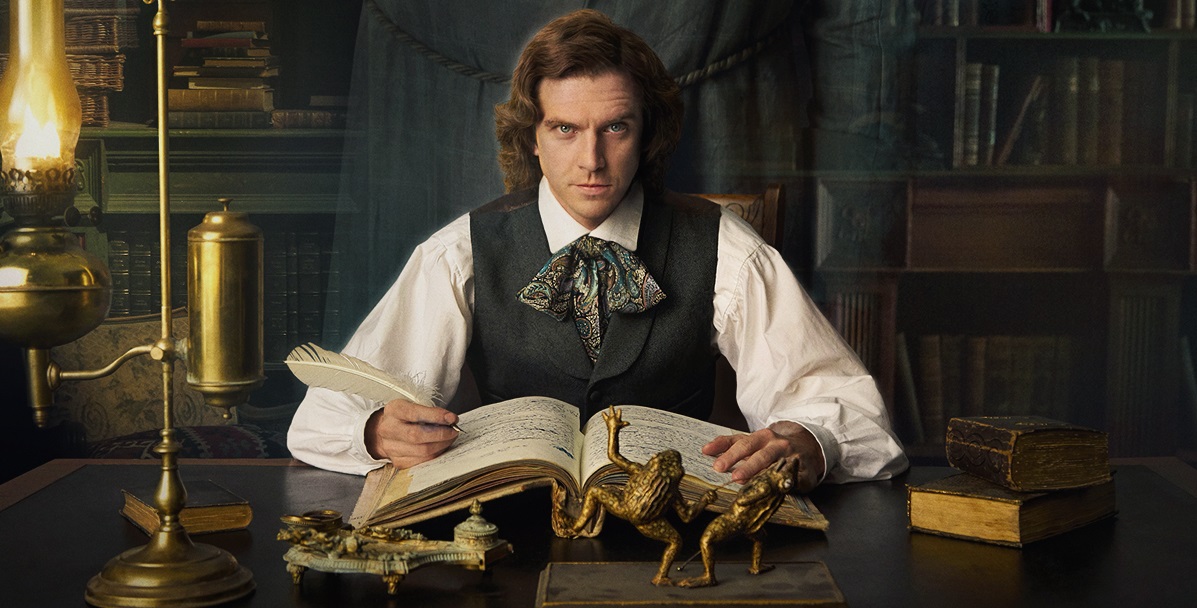The Man Who Invented Christmas tells the incredible and inspiring story behind the origins of one of Charles Dickens’ most popular books, “A Christmas Carol.”
Charles Dickens is having writer’s block – and he’s short on money, too.
The year is 1843, and the man who wrote “The Adventures of Oliver Twist” and “The Life and Adventures of Nicholas Nickleby” is struggling to come up with another hit. His newest books are getting bad reviews. His publisher even is threatening to cut him off.
“I’ve run out of ideas,” he tells a good friend.
It’s no small problem. An author without ideas is an author without a paycheck. And with several mouths to feed and another baby on the way, Dickens is feeling the pressure.
But then he gets inspired from a series of real-life events. He sees a rich man disparage a beggar. He hears about a poor man tossed into debtor’s prison. Perhaps his next novel could spotlight a cold-hearted miser who despises not only poor people, but Christmas, too. Dickens will call the character … “Scrooge”!
The Man Who Invented Christmas (PG) opens this week, telling the incredible story behind the origins of one of Dickens’ most popular books, “A Christmas Carol.” It stars Dan Stevens (Downton Abbey) as Dickens and Christopher Plummer (Up, The Sound of Music) as Ebenezer Scrooge.
The film gets its curious title from the impact of “A Christmas Carol” on our modern-day celebration of the holiday. The book popularized the phrase “Merry Christmas,” sparked a rise in generosity, and helped revive Christmas as an important date on the calendar. Until then, it often passed with little fanfare. (And, for the record, Jesus – not Dickens – invented Christmas.)
The Man Who Invented Christmas is an entertaining and inspiring tale of an author who simply wanted to promote charitable giving and who wanted to – in his words – deliver a “hammer blow” to selfishness. It’s also an instant Christmas classic.
Let’s examine the details.
Warning: minor spoilers!
Violence/Disturbing
Moderate. We see flashbacks of Dickens as a boy, when he and another boy got into a fight. We also see Dickens take a swing at an imagined ghost. For young children, the most disturbing element involves the images of the various ghosts in the story, including the Ghost of Christmas Future. Children who are troubled by the black-and-white film or by Dickens’ book should skip this one.
Sexuality/Sensuality/Nudity
None.
Coarse Language
Minimal. One instance of “a–.” Several uses of the British word “bloody.”
Other Positive Elements
Dickens has a heart for the poor. When given a chance to send a man to debtor’s prison, he refuses. His goal is to see society’s wealthy assist the poor.
He also wants his story to end with hope – that is, with Scrooge repenting. (See Worldview, below.)
Other Negative Elements
Dickens believes his father squandered his life. The two men have a bad relationship. Dickens even tells his father, “Go away … I am sick of the sight of you.” But by the film’s end, the two men reconcile.
We also see Dickens and a friend get drunk.
Life Lessons
The Man Who Invented Christmas includes lessons on generosity (Dickens, Scrooge), the danger of riches (Scrooge), redemption (Scrooge, Dickens’ father) and family (Dickens and his father).
Worldview
“People don’t change,” an imagined Scrooge tells Dickens.
Dickens, though, refuses to believe it. He wants his novel to tell the story of a miser who – yes – wasted his life, but who also sees his errors. He wants the miser to repent.
The Bible is full of warnings about the dangers of riches, but it’s also full of stories of redemption. Roughly half the New Testament was written by a man who once hated and murdered Christians!
The Man Who Invented Christmas is not a faith-based story in the strict sense. But it is filled with biblical principles that are worthy of discussion on the ride home.
What I Liked
The screenplay. It’s not easy making a movie about a man writing a book. Think about it: How do you depict his mental struggles on the big screen? The filmmakers accomplished this by showing Dickens literally talking to Scrooge. Scrooge sort of “helps” Dickens write the book, but Dickens often pushes back against the miser’s self-centered beliefs.
What I Didn’t Like
The title.
Family-Friendly?
Young children who are sensitive to the disturbing elements of “A Christmas Carol” shouldn’t see this one. But for most parents and children, it would be considered family-friendly.
Thumbs Up … Or Down?
Thumbs up.
Rated PG for thematic elements and some mild language.
Entertainment rating: 4 out of 5 stars. Family-friendly rating: 4 out of 5 stars.
